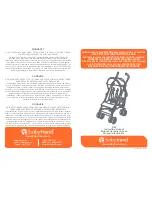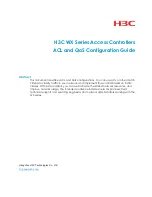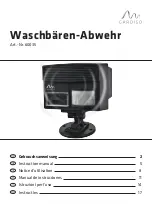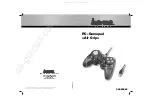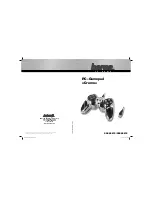
48
ENGLISH
APPENDIX A
ITALIANO
user choice. In case 0 is set, the information coming from the temperature
sensor is still used for the regulation purpose, even if its value can not
be displayed. When set to value 2 we mean that a bimetallic thermostat
will be connected to terminals 13 and 14 to perform only the cut-off
temperature function when in heating mode.
P09:
This parameter enables the room “de-stratification“ function. With
this function the fan is turned on, at its lowest speed, for about 1.5
minutes every 15 minutes. The function is only active when the fan should
be turned off according to the room temperature regulation.
P10:
In case of a black-out the thermostat remembers its latest state
and when the power returns, it restarts with the same settings (on/off,
heating/cooling, etc.). Anyway, in some situations it is requested that the
thermostat restarts to a know state (i.e. always OFF or always ON). This
can be accomplished by setting parameter P10 to “2“ (always restart from
“ON “) or “3“ (always restart from “OFF“).
P11:
Room temperature sensor selection.
This parameter sets whether the temperature sensor used for regulation
has to be the internal one in the thermostat or the external one (optional).
P12:
With this parameter a slight correction (offset) for the acquired room
temperature can be set. Actually it could happen that in some installations,
due to the sensor location (either internal or external) the temperature
readout is not accurate. By changing the value of this parameter the
display readout can be corrected of the equivalent amount being this a
value which is actually added to the acquired temperature reading.
P13 and P14:
These two parameters set the range of the setpoint
temperature when in heating mode. In details P13 is the lower limit, while P14
is the upper limit.
P15 and P16:
These two parameters set the range of the setpoint
temperature when in cooling mode with the same logic as those in the
former step. When the heating/cooling mode is changed, the limits of the
setpoint temperature are automatically modified in turn.
P17:
This parameter defines an anti-freeze temperature, that is a minimum
temperature which is maintained in the room even when the regulator is
turned off. Regulation according to this temperature will only take place
when the regulator is set in heating mode; the fan speed will be limited to
the lowest one. Setting the value to 0.0°C (32°F) disables the anti-freeze
function.
P18:
This value defines the entity of a temperature reduction step (in
°C o °F) used to perform the “Economy“ function. The actual setpoint is
therefore reduced (when in heating mode) or raised (when in cooling mode)
by this step, once the “Economy“ function is made active. Setting this
parameter to 0.0 the “Economy“ function is always disabled.
P19:
This parameter sets the hysteresis (in °C o °F) used in the room
temperature regulation process when on-off loads are used.
P20:
In case the controller is configured for a neutral zone operation this
parameter determines the neutral zone amplitude.
P21:
This parameter allows to set a delay time (in seconds) from the
valve opening to the fan turn-on, in order to allow some time for the heat
exchanger to heat-up or cool-down.
P22:
This parameter allows to set a delay time (in seconds) from the
valve closing to the fan turn-off, in order to allow some time for the heat
exchanger or electric heater to dissipate the residual heat.
P23:
This parameter defines the threshold above which the delivery
Summary of Contents for CR26
Page 1: ......
Page 3: ...2 ...
Page 4: ...3 INSTALLAZIONE INSTALLATION Fig 1 2 1 1 Fig 2 2 Fig 3 3 ...
Page 5: ...4 Fig 5 Fig 4 4 5 2 1 ...
Page 61: ......
Page 62: ......































